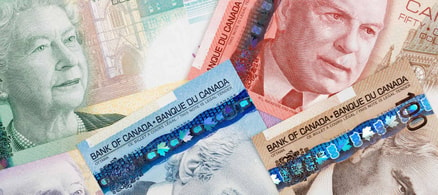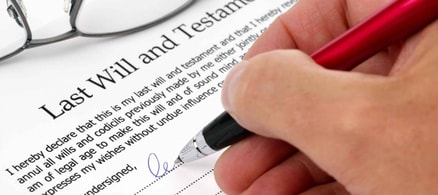The cost of testing
With the rapid spread of the COVID-19 Omicron variant, Canada now requires all travellers entering the country, unless exempt, to provide a negative COVID-19 molecular test. This test must be taken within 72 hours of your originally scheduled departure flight to Canada and it must be taken in a country outside of Canada.
Depending on what country you’re travelling from, these tests could cost you anywhere from nothing to US$100 per person. Don’t forget, many countries also require you to provide either a negative molecular or antigen test when entering. For reference, a molecular test in Canada costs about $150, while antigen tests will set you back $20 to $40. If you’re travelling solo, this may not be a big deal, but if you’re travelling as a family, those costs could add up quickly.
Maximize Your Tax Refund with TurboTax Canada!
Simplify tax season with this user-friendly software. Get step-by-step guidance, maximize deductions, and file with confidence. Trusted by millions, TurboTax Canada ensures accuracy and peace of mind. Start your taxes today and get the refund you deserve
Get the tax refund you deserveConstantly changing rules
Besides testing, there’s always the possibility that new rules introduced could significantly impact your travel plans. For example, a country could implement a ban restricting visitors from Canada. They could also ban travel back to Canada. That would force you to cancel your plans or to find an alternate way home.
While those are extreme measures, they have happened in this pandemic. A more likely scenario would be one where countries introduce additional testing and quarantine when you arrive. Not only could this increase your overall trip costs, but it would also cut into your vacation time.
Even if you’re planning to stay within Canada, you need to think about any potential rule changes. Newfoundland and Labrador and Prince Edward Island have reintroduced a quarantine requirement for travellers entering those provinces.
Pay extra for something fully refundable
Pre-COVID-19, many people would opt for the cheapest price possible when it came to their vacation expenses. However, going that route usually meant you had the least flexible refund policy. These days, it’s probably a good idea to pay extra for something that’s fully refundable.
Vacation packages: As an example, Air Canada Vacations offers exclusive CareFlex travel protection for $69 to $99 per person. By purchasing this plan, you can cancel for a full refund, change your booking, or even transfer your package to someone else as long as you do it up to 21 days prior to your departure. You can even make changes up to three days before you’re set to depart, but you’d only get a travel credit.
Hotel rooms: Hotel chains operate in a similar fashion. For example, most hotel brands that fall under Marriott International have a fully refundable policy when you book the standard rate. That said, you usually have to cancel within two to five days before your arrival or you’ll be charged a fee of one night. Even though this flexible rate will cost you more, you could use it to lock something in. Once you know you’re travelling for sure, you could book a lower rate at the same hotel and cancel your refundable room.
Airline tickets: With airfare, things can be a bit more complicated. The fare classes that offer you a full refund are usually significantly more expensive than something that’s non-refundable. Always read the terms and conditions before you purchase your tickets so you know what you’re entitled to.
Grow Your Savings Effortlessly with Moka
Automate your savings with every purchase and watch your money multiply. Moka rounds up your transactions and invests the spare change. Start building wealth effortlessly today. Join thousands of Canadians embracing financial freedom with Moka
Sign up nowCheck your travel insurance
Canada issued a Level 3 global travel advisory in December 2021. In most cases, your travel insurance should still cover you for COVID-19 related issues if you were to continue with your travel plans, as the advisory is not for specific countries. That said, since every policy is different, you need to read the details to find out what you’re covered for.
Speaking of details, you’ll also want to pay attention to what qualifies for COVID-19 coverage. Many policies will be quite clear and state that you’ll be covered for any COVID-19 related medical treatment. However, not every policy includes quarantine protection. The ones that do usually have specific terms. For example, it may only cover your hotel stay for up to 14 nights at $200 a night.
Additionally, you’ll want to ensure that your travel insurance covers trip cancellation/interruption in case COVID-19 forces you to alter your plans. Some credit cards include this insurance for free, so you may not need to buy an additional policy.
Even if you need to buy a seperate travel insurance policy, it’s not that expensive. A comprehensive package will cost you roughly $6 to $15 a day. You can also buy annual multi-trip plans that are cost effective. Manulife’s CoverMe travel insurance plan is one of the more popular options for travelling Canadians.
Be flexible
It doesn’t matter if you plan on travelling within Canada or heading abroad, you need to be flexible since we’re still living through a global pandemic. New restrictions are always possible. These new measures would increase your costs and possibly affect your experience. In the end, you need to decide if the risks and additional costs of travelling right now are worth it.
Sponsored
Trade Smarter, Today
With CIBC Investor's Edge, kick-start your portfolio with 100 free trades and up to $4,500 cash back.







